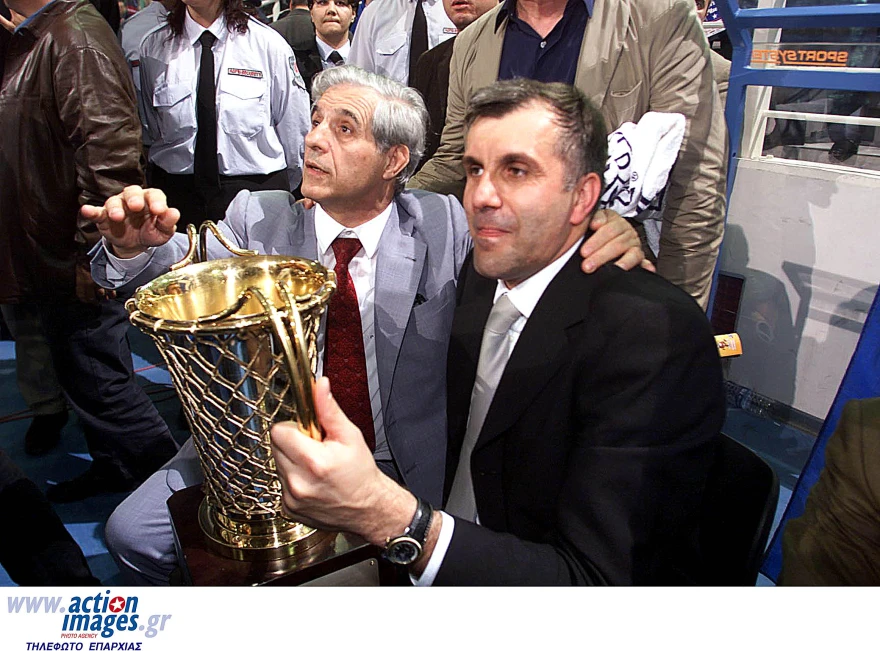Panathinaikos, the most decorated club in modern EuroLeague history, has established a remarkable legacy. However, they still seek one achievement: winning back-to-back titles—a feat accomplished by their current head coach, Ergin Ataman, with Anadolu Efes in 2022 and 2023.
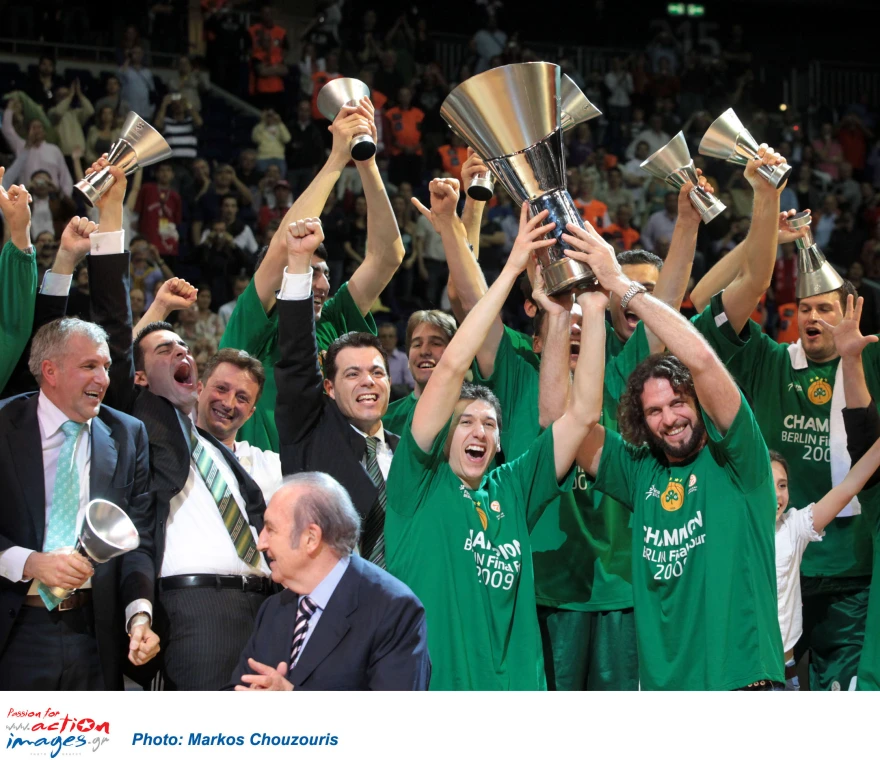
The Rise of a Titan (1994–2000)
The journey of Panathinaikos in the Final Four began 31 years ago in Tel Aviv, 1994, where both PAO and Olympiacos represented Greece. Despite losing the semifinal to Olympiacos, the Greens claimed third place by defeating Barcelona 100–83.
The following year, in Zaragoza, the story repeated: a semifinal loss to Olympiacos was followed by a victory against Limoges.
However, 1996 in Paris marked a significant change. With Dominique Wilkins scoring 35 points against CSKA Moscow in the semifinal, and Stojan Vranković delivering a crucial block to secure a 67–66 victory over Barcelona in the final, Panathinaikos lifted their first European title, becoming the first Greek club to achieve this.
In 2000, they added another trophy at home in Thessaloniki, defeating Efes Pilsen and Maccabi Tel Aviv to reign once more.
Suproleague Split and Sweet Redemption (2001–2002)
The subsequent season saw EuroLeague’s division, with PAO joining FIBA’s Suproleague. They reached the final again but were defeated by Maccabi in Paris—marking their only final loss to date.
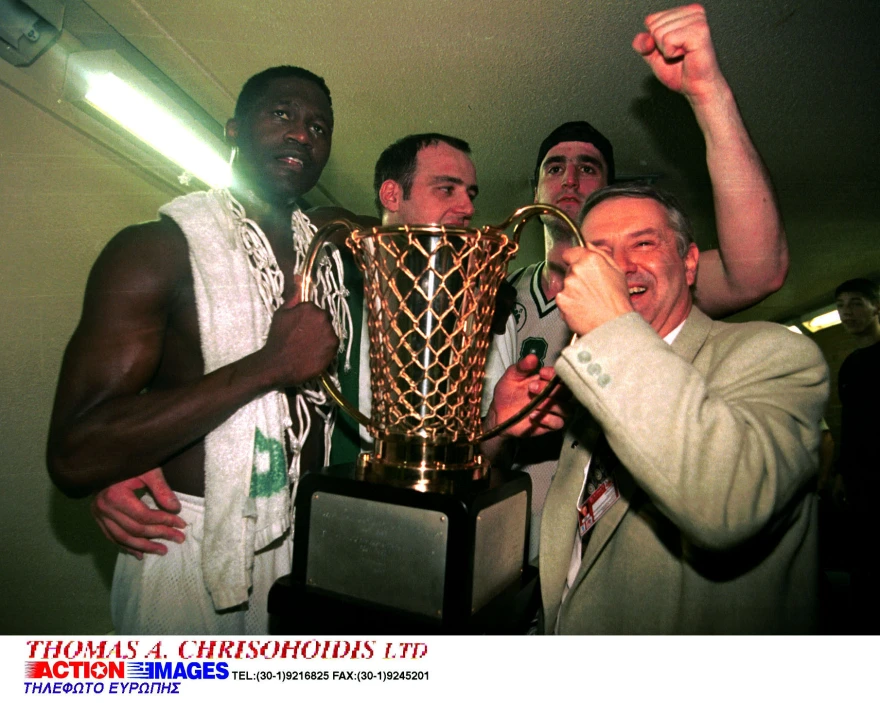
In 2002, reunited with the EuroLeague and under the guidance of Željko Obradović, Panathinaikos triumphed over Bologna, defeating the hosts Kinder in an 89–83 showdown, marking their third title.
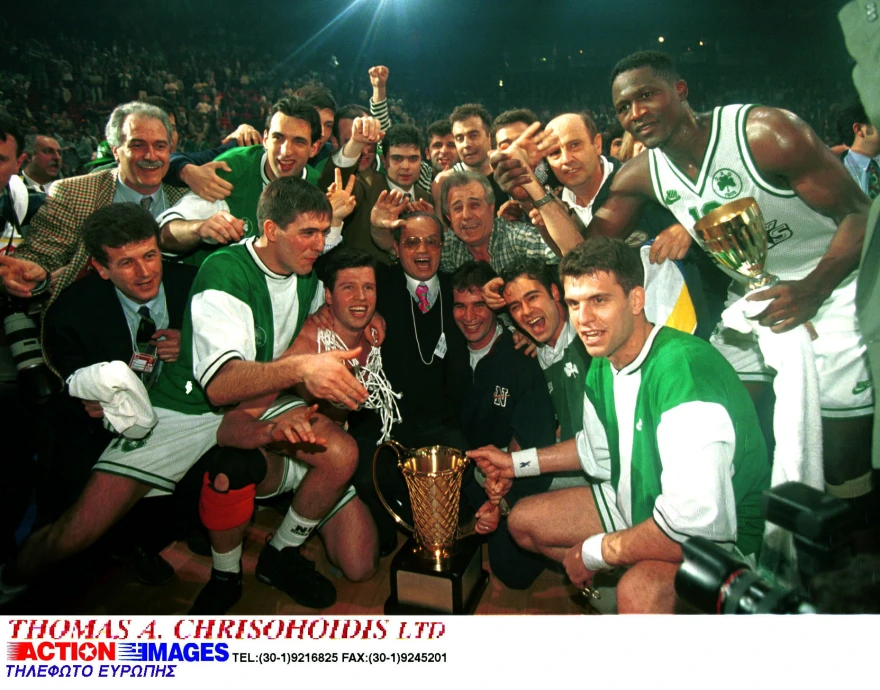
The OAKA Era and European Domination (2005–2011)
A brief period of difficulty ended in 2005 with a Final Four appearance in Moscow. PAO lost to Maccabi but managed to secure third by beating CSKA.
The year 2007 brought one of the most thrilling Final Four atmospheres. Playing at the OAKA, Panathinaikos overcame Baskonia and edged CSKA 93–91 in a memorable final—securing their fourth title and emboldening a new chapter.
In 2009, a powerful backcourt—Diamantidis, Spanoulis, Jasikevičius, Nicholas—led Panathinaikos past Olympiacos and CSKA in Berlin, clinching yet another trophy.
By 2011, success became routine. With Barcelona hosting, the club dispatched Siena and Maccabi as Obradović secured his fifth EuroLeague title as PAO’s coach, marking the club’s sixth championship.
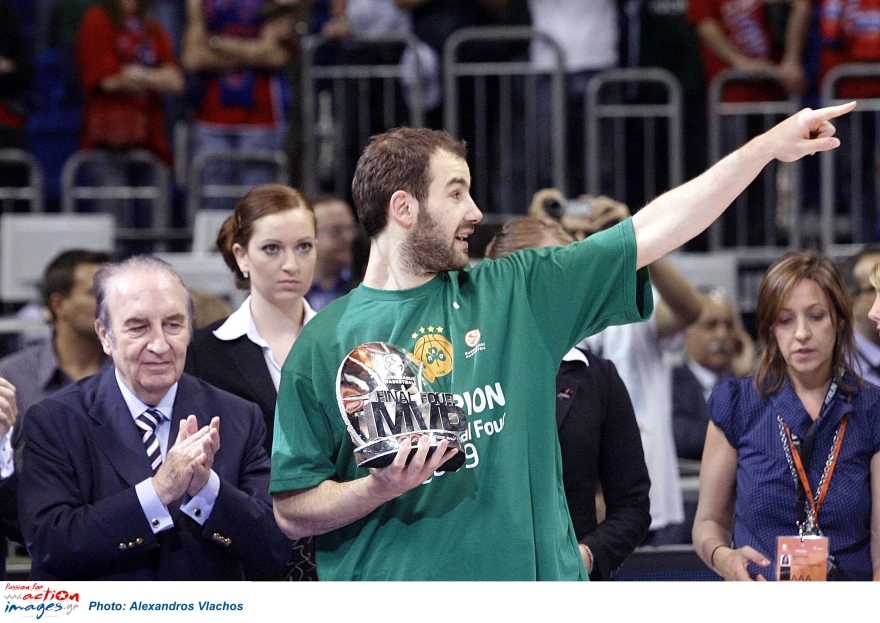
The era of that exceptional generation concluded in 2012 with tight losses in the semifinal and for third place against CSKA and Barcelona.
The Wilderness Years (2013–2023)
After 2013, the team’s luster diminished. Initially, they reached the playoffs but didn’t make it to the Final Four, eventually struggling to remain even in the top eight—culminating in a second-to-last place finish in 2022.
However, 2023 heralded a significant change.
Under Ergin Ataman‘s leadership and a restructured roster, Panathinaikos rediscovered its strength. The semifinal took place in Berlin against Fenerbahçe, which they dispatched easily with a score of 73–57.
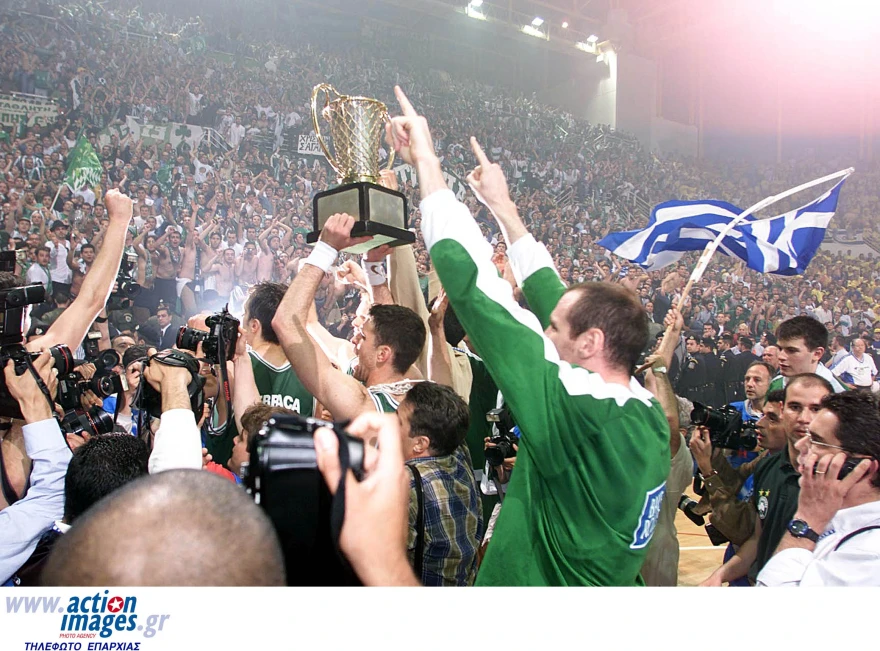
In the final, despite a strong start from Real Madrid, the Greens surged back with the help of Final Four MVP Kostas Sloukas, executing a remarkable second-half comeback to win 95–80 and claim their seventh European title—their first in over a decade.
Panathinaikos’ Final Four Journey at a Glance
| Year | City | Result |
|---|---|---|
| 1994 | Tel Aviv | 3rd place |
| 1995 | Zaragoza | 3rd place |
| 1996 | Paris | Champions 🏆 |
| 2000 | Thessaloniki | Champions 🏆 |
| 2001 | Paris (Suproleague) | Runner-up |
| 2002 | Bologna | Champions 🏆 |
| 2005 | Moscow | 3rd place |
| 2007 | Athens (OAKA) | Champions 🏆 |
| 2009 | Berlin | Champions 🏆 |
| 2011 | Barcelona | Champions 🏆 |
| 2012 | Istanbul | 4th place |
| 2024 | Berlin | Champions 🏆 |
As the 2025 Final Four in Abu Dhabi approaches, Panathinaikos carries not only its rich history but also fresh momentum. With a championship-level coach, a seasoned roster, and seven stars on their jersey, the Greens are set on achieving something unprecedented in their history: consecutive titles.
